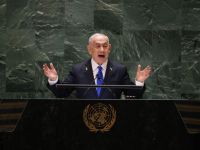Egypt has been experiencing a shortage of foreign currency supply, and the government's struggle to keep the dollar at a level of LE3.40 to the U.S. dollar, which has characterized the Egyptian currency since the early 1990s, has proven increasingly difficult.
The two main factors that have led to a lack of supply of U.S. dollars are the decline in tourism revenues—a factor which can be traced back to the 1997 massacre by Islamic militants of foreign visitors in Luxor—and the decline in income from oil. Although these two circumstances have greatly affected the government's balance of payments, the government's reluctance to improve the foreign currency supply has likely kept investors away.
Commenting on the state of the Egyptian economy, Merrill Lynch, the American investment bank, noted that "a reluctance on the part of the Central Bank of Egypt (CBE) to supply U.S. dollars to the market became problematic by mid-1999 when commercial banks had drawn down their foreign assets to about $1.7 billion, from $9 billion in mid 1997." Moreover, Merrill Lynch stated, "despite pressure on the exchange rate, interest rates remained substantially flat through 1998 and domestic credit growth accelerated from 13 percent in 1997/98 to 19 percent in 1998/99."
Still, ever since the swearing in a new government several months ago, there does appear to have been a general improvement in the situation. Greater foreign currency reserves have risen, interest rates have increased and the level of credit has been greatly diminished.
The government has also taken measures to heavy-handed management of the Egyptian currency, by allowing a slight devaluation to take place— a move which it is hoped will narrow the exchange rate gap that is evident between commercial banks and private foreign exchange bureaus.
At present, the government has essentially two short-term alternatives for dealing with the problematic foreign currency situation. The first would is to increase interest rates on the pound, as a means of encouraging investors to relinquish foreign currency in favor of local currency. The second is borrowing the money by way of long-term loans.
Ultimately, the privatization of state-owned assets offers a more permanent solution. Many Egyptian economists now recognize that privatization is a crucial step in attracting foreign investors.
A good number of economists are wary about the pitfalls of a more liberal devaluation policy, fearing that it will lead to a massive increase in the country's $17 billion import bill. Moreover, a depreciation in the pound would not necessarily increase the country's exports, since many Egyptian goods are considered of poor quality by international standards.
Still, a recent Merrill Lynch report, released at the end of the 1999-2000 fiscal year, noted a significant improvement in Egypt’s balance of payments. Additionally, the report stated, the decline in foreign reserves is stabilizing, and the country's capital accounts deficit reached $94 million, down from a previously reported high of $650 million.
Merrill Lynch forecasts that the positive trend will most likely continue in the coming quarters, as higher interest rates have lead to a more moderate decline in foreign reserves, in addition to better account deficit figures and an increased focus on the private sector. These factors, the bank concludes financial and monetary progresses, will most likely help the Egyptian government maintain the pound at its current level. – (Albawaba-MEBG)
© 2000 Mena Report (www.menareport.com)







